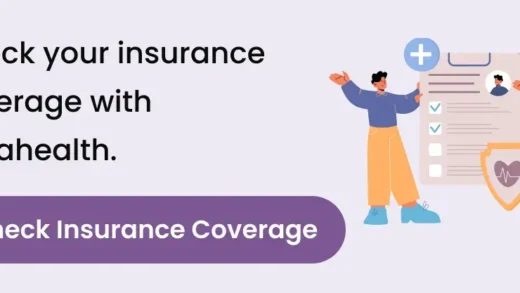Teenage years are a tumultuous time filled with challenges and self-discovery. For many adolescents, navigating this phase can be overwhelming, leading to the necessity of teen therapy. In this article, we will explore the nuances of Washington teen therapy, focusing on its importance, common issues faced by teens, signs that indicate therapy might be needed, and the various types of therapy available.
Common Teen Issues
Academic Pressure
One of the primary stressors for teens is academic pressure. The expectations to perform well in school can lead to anxiety and even depression.
Peer Pressure
Peer pressure is another significant factor influencing teens. The desire to fit in or conform to societal standards can result in risky behaviors or emotional struggles.
Identity Crisis
The journey to self-discovery often involves an identity crisis. Teens may grapple with questions about their values, beliefs, and future aspirations.
Signs That Your Teen Needs Therapy
Behavioral Changes
If you notice sudden changes in your teen’s behavior, such as aggression, isolation, or mood swings, it might be an indication that therapy is necessary.
Academic Decline
A noticeable decline in academic performance can be a red flag. It could suggest underlying emotional or mental health issues affecting concentration and focus.
Social Withdrawal
Teens often withdraw from social activities when they face internal struggles. If your teen avoids social interactions, therapy might provide the necessary support.
Benefits of Teen Therapy
Improved Communication
Teen therapy fosters better communication skills, helping adolescents express their thoughts and feelings effectively.
Enhanced Coping Skills
Therapy equips teens with coping mechanisms, enabling them to navigate challenges in a healthier manner.
Emotional Regulation
Learning to regulate emotions is a crucial aspect of teen therapy. It empowers teens to manage stress and anxiety more effectively.
Types of Teen Therapy
Cognitive Behavioral Therapy (CBT)
CBT focuses on identifying and changing negative thought patterns, fostering positive behavioral changes in teens.
Family Therapy
Involving the family in therapy sessions can strengthen relationships and create a supportive environment for the teen.
Group Therapy
Group therapy allows teens to connect with peers facing similar challenges, fostering a sense of community and understanding.
Choosing the Right Therapist
Qualifications
Ensure the therapist is licensed and has experience working with teenagers.
Specializations
Look for therapists specializing in areas relevant to your teen’s specific issues.
Compatibility
A good therapist-teen match is essential for a productive therapeutic relationship.
Washington’s Approach to Teen Therapy
Washington boasts a range of resources dedicated to teen mental health. From counseling centers to support groups, the state emphasizes the importance of a supportive community.
Success Stories
Real-life success stories highlight the positive impact of teen therapy. These narratives offer hope and inspiration to those considering therapy for their teens.
Myths About Teen Therapy
Breaking Stereotypes
Dispelling common myths about teen therapy helps reduce stigma and encourages open conversations about mental health.
Addressing Misconceptions
Understanding the realities of teen therapy, such as the confidentiality of sessions, helps parents and teens make informed decisions.
Teen Therapy Techniques
Art Therapy
Art therapy provides a creative outlet for teens to express themselves when words may fall short.
Mindfulness Practices
Teaching teens mindfulness techniques enhances their ability to stay present and manage stress.
Play Therapy
Especially effective for younger teens, play therapy allows them to communicate through play, aiding in emotional expression.
Challenges in Teen Therapy
Resistance to Therapy
Teens may initially resist therapy. It’s essential to address their concerns and gradually build trust.
Involving Parents
Incorporating parents into the therapeutic process can be challenging but is crucial for sustained progress.
Teen Therapy and Technology
Online Counseling
The accessibility of online counseling widens the reach of teen therapy, breaking down geographical barriers.
Digital Support Platforms
Apps and online platforms offer additional support, providing resources and coping mechanisms.
The Future of Teen Therapy
As technology advances, teen therapy evolves. Research and innovations pave the way for more effective and tailored therapeutic interventions.
Conclusion
In conclusion, teen therapy is a vital resource for adolescents facing the challenges of growing up. By addressing common issues, understanding the benefits, and exploring different therapy types, teens can find the support they need to navigate this transformative phase successfully.
FAQs
How do I know if my teen needs therapy?
Look for behavioral changes, academic decline, or social withdrawal as potential indicators.
What types of therapy are suitable for teens?
Cognitive Behavioral Therapy (CBT), family therapy, and group therapy are popular choices.
Can online counseling be as effective as in-person therapy?
Yes, online counseling can be highly effective, providing accessibility and convenience.
How involved should parents be in teen therapy?
Involvement varies but is crucial for the success of therapy. Open communication is key.
Are there support groups for parents of teens in therapy?
Yes, many communities offer support groups to help parents navigate their teen’s therapy journey.







